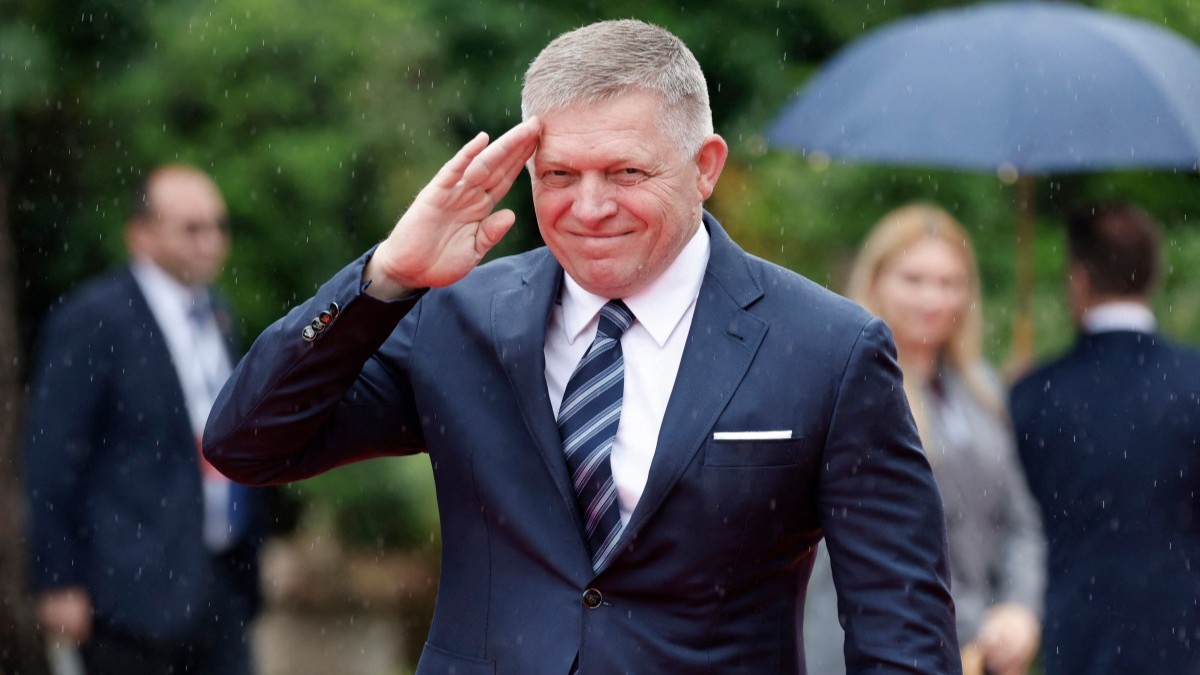A war of words erupted between Slovakia and Ukraine over the weekend following the announcement that U.S. President Donald Trump will meet his Russian counterpart Vladimir Putin on Friday, August 15th, in a bid to end the war in Ukraine.
In a Facebook post on Saturday, Fico, a staunch advocate for peace talks rather than military aid, claimed that “Ukraine will have to pay dearly” due to the West’s failure to weaken Russia by supporting the war.
Everyone already knows that the conflict has serious roots in recent history, that it has no military solution, everyone already knows that Ukraine’s membership in NATO is impossible.
Fico used an African proverb, saying, “No matter how the elephants’ negotiations on August 15 turn out, the grass will suffer—in this case, Ukraine.”
The use of this metaphor, which likened Ukraine to “the grass” that suffers amid the negotiations between “the elephants” of Russia and the U.S., immediately drew condemnation from Ukraine’s foreign ministry.
It described Fico’s rhetoric as “openly offensive” and warned that “such flippant statements insult the memory of the fallen, the suffering of millions of Ukrainian families, and the sacrifice of those who fight for freedom.”
The ministry further criticised Fico’s comments for resorting to “unfriendly folkloric allegories” to “boost” his “domestic political ratings” at the expense of Ukraine.
Fico, however, responded to the backlash by asserting his right to free speech, defending his views on the conflict.
The war in Ukraine has deformed freedom of speech in the EU. Any opinion other than a compulsory opinion is harshly criticised and condemned, even if it is based on objective information. I reject such deliberate deformation of fundamental rights.
He also emphasised his consistent position on the war, calling for an immediate “just peace” and an end to what he described as “senseless killing of Slavs.”
The Slovak premier’s comments in fact reflect the stance he has consistently held on the conflict.
Fico, along with Hungarian Prime Minister Viktor Orbán, has repeatedly advocated for peace talks rather than supporting Ukraine with military aid, which he believes has exacerbated the situation rather than contributing to a resolution. His position is at odds with most EU members, who have backed Kyiv’s defence against Russian aggression.
The two countries’ strained relations were further complicated by a dispute over energy supplies last year when Ukraine halted the transit of Russian gas through its territory to neighbouring Slovakia. The move affected Slovakia’s energy security, prompting Fico to vocally criticise the decision. The Slovak PM said
Slovakia provides critical electricity supplies to Ukraine and Ukraine uses European legislation, which mandates us to provide Slovak infrastructure for gas supplies to Ukraine. On the other hand, the Ukrainian president stopped gas deliveries to Slovakia through Ukrainian territories, this has significantly damaged Slovakia.
Fico also strongly opposes the EU’s push to ban Russian gas imports, warning that such policies would create significant economic hardship for Slovakia and Hungary, who depend on the cheap energy source.
As tensions continue to rise between Bratislava and Kyiv, Fico’s remarks further highlight the deepening divide within Europe over how to handle the war in Ukraine, with EU institutions appearing to put Ukraine first over member states like Slovakia.
